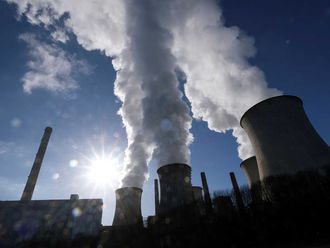London : Gold climbed above $1,130 (Dh4,148) an ounce in Europe yesterday as the US Federal Reserve's announcement that it will keep interest rates low for an "extended period" knocked the dollar.
Spot gold was bid at $1,131.75 an ounce at 1038 GMT, against $1,124.70 late in New York on Tuesday. US gold futures for April delivery on the Comex division of the New York Mercantile Exchange rose $9.70 to $1,132.10 an ounce.
The dollar came under pressure after the Fed stuck to its pledge to keep interest rates at current record lows.
"As soon as the euro-dollar started moved towards $1.38, we saw currency factors," said Nick Moore, head of commodity strategy at RBS Global Banking & Markets.
"Gold's inverse relationship with the dollar is such a powerful [influence] that most moves in gold on a daily basis can be explained by currencies."
Weddings
Low interest rates also lessen the opportunity cost of holding gold, or the amount it costs investors to hold non-interest bearing bullion instead of other assets such as cash on deposit.
"As a non-yielding asset, obviously if interest rates remain near zero, gold can compete, but as soon as we see indications of tightening, it will be on the back foot," said Moore.
Equity markets also rose on the back of the Fed, with European shares climbing to a two-month high and world stocks firming 0.6 per cent.
Among other commodities, oil prices extended the previous session's near $2 gains to well above $82 a barrel. Gold tends to track crude prices, as the metal can be bought as a hedge against oil-led inflation.
On the physical markets, Indian gold buying softened in response to rising dollar prices after strong festival-related demand took it to one-week highs earlier.
Dealers say spring wedding-related demand is likely to emerge if prices decline further.
"Any corrections to sub-$1,100 an ounce level would be bought as weddings are around the corner," said a dealer with a state-run bank in Mumbai.
Platinum meanwhile rose to two-month highs and palladium climbed as concerns over power shortages in South Africa boosted prices.












